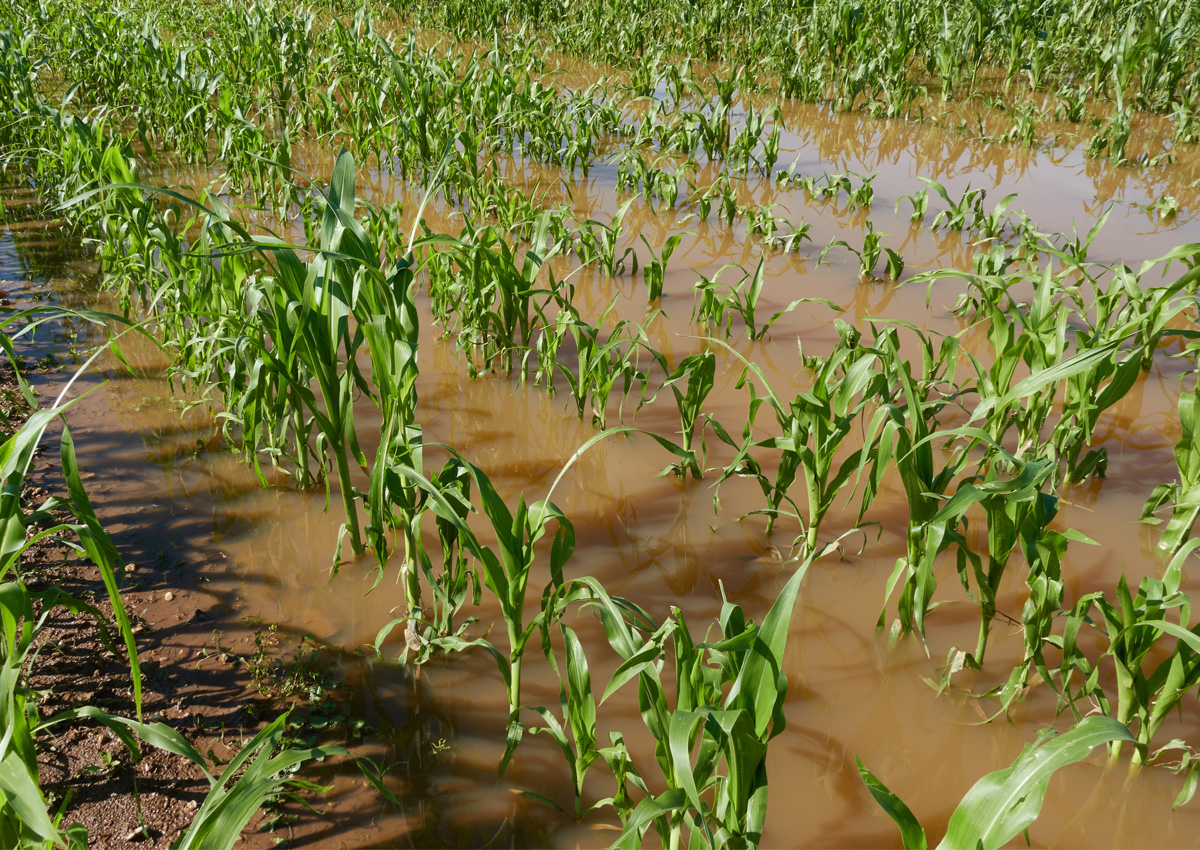
Researchers in Japan Identify Genes to Help Crops Against Flooding
October 5, 2022| |
Flooding has become a global concern, putting people at risk of starvation due to water drowning crops. Now, researchers are getting closer to identifying the molecular processes underlying how floods deprive plants of oxygen — and how to engineer hardier crops.
“Hypoxia is an abiotic stress for plants often caused by flooding,” said the paper's first author Keita Tamura. Hypoxia is a condition where plants are deprived of oxygen because of oversaturation. The team from Hiroshima University's Graduate School of Integrated Sciences for Life has uncovered several common genes and their related mechanisms in rice (Oryza sativa) and thale cress (Arabidopsis thaliana). The researchers focused on rice and thale cress since the genetics of the two plants have been extensively studied, providing ample amounts of data. The research team identified 29 pairs of RNA-sequencing data for thale cress and 26 pairs for rice for the plants in both normal oxygen and oxygen-deprived states from the available datasets.
“By analyzing RNA-sequencing data of hypoxia treatments in thale cress and rice, we identified 40 and 19 commonly upregulated and downregulated genes in both species,” said corresponding author Hidesama Bono. According to Bono, this common upregulation means that these molecular machineries became more active during oxygen deprivation, indicating their specific responsibilities for plant response. Bono and Tamura compared the results of their study to a similar meta-analysis of hypoxia in human cells and tissue samples. They found two of the commonly upregulated genes in rice and thale cress were downregulated in their human counterparts.
“Our meta-analysis suggests distinct molecular mechanisms under hypoxia in plants and animals,” Bono said. “The candidate genes identified in this study are expected to elucidate novel molecular mechanisms of hypoxia responses in plants. Ultimately, we plan to manipulate one of the candidate genes through genome editing technology to create flood-tolerant plants.”
For more details, read the article on the Hiroshima University website. The results of the study are published in Life.
| |
You might also like:
- International Team Discovers Signaling Molecule that Make Flood Resistant Plants
- Study Opens Door to Flood Resistant Crops
- Utrecht Biologists Discover A Way to Make Plants Flood Tolerant
Biotech Updates is a weekly newsletter of ISAAA, a not-for-profit organization. It is distributed for free to over 22,000 subscribers worldwide to inform them about the key developments in biosciences, especially in biotechnology. Your support will help us in our mission to feed the world with knowledge. You can help by donating as little as $10.
-
See more articles:
-
News from Around the World
- FAO and WFP Forecast Food Insecurity in the Coming Months
- Historic Moment in Kenya as Government Lifts GMO Ban
- Tel Aviv University Researchers Enable Rust Resistance in Wheat
- Updates on Golden Rice and Other Biotech Crops in the Philippines
- ISAAA Webinar Explores Animal Biotech Prospects in the Philippines
- Researchers in Japan Identify Genes to Help Crops Against Flooding
- Scientists Genetically Engineer Mosquitoes that Can't Spread Malaria
-
Research Highlights
- Scientists Test Efficacy of Alternate Insecticidal Gene for Cotton
-
Read the latest: - Biotech Updates (February 4, 2026)
- Gene Editing Supplement (January 28, 2026)
- Gene Drive Supplement (February 22, 2023)
-
Subscribe to BU: - Share
- Tweet

